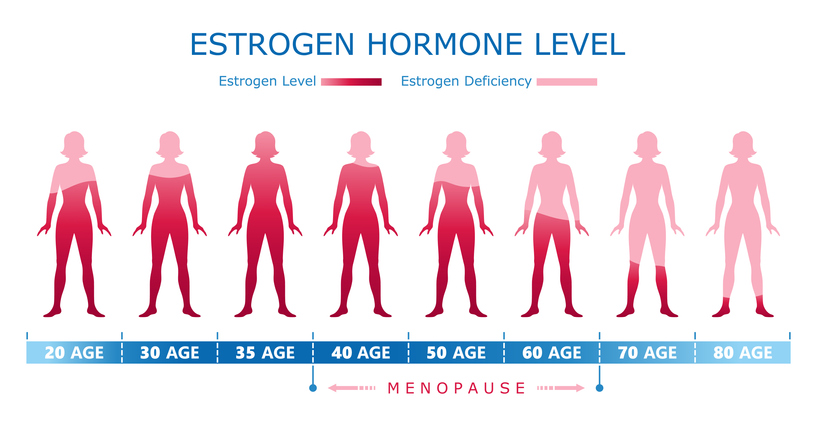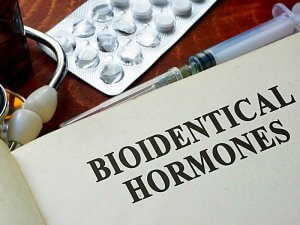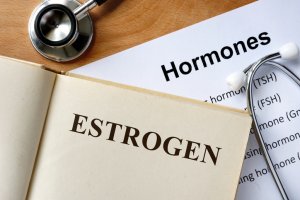Available TreatmentsAvailable Treatments
Chronic pain is a debilitating condition that affects millions of people worldwide, causing persistent discomfort and reducing the overall quality of life. While various treatment options exist, the role of hormones in pain management has gained significant attention. In recent years, researchers have been exploring the connection between testosterone, a vital hormone predominantly found in males but also present in females, and chronic pain. This article delves into the impact of testosterone on chronic pain, citing medical research studies to shed light on its potential benefits and mechanisms of action.
Chronic pain is characterized by persistent discomfort lasting for extended periods, typically beyond three months. It can arise from various conditions such as arthritis, fibromyalgia, neuropathy, and musculoskeletal disorders, among others. Traditional treatments often involve analgesics, physical therapy, and psychological interventions. However, the effectiveness of these methods may vary, and some individuals may experience inadequate relief. This has prompted researchers to explore alternative approaches, including the role of hormones like testosterone.
Testosterone is a hormone primarily produced in the testicles in males and in smaller amounts by the ovaries and adrenal glands in females. It plays a crucial role in the development of male reproductive tissues and secondary sexual characteristics. However, testosterone is not limited to its effects on reproduction; it also influences various bodily functions, including muscle mass, bone density, mood regulation, and pain perception.
The connection between testosterone and chronic pain is a topic of increasing interest in medical research. Studies have highlighted the potential benefits of testosterone in pain management, particularly in individuals with low testosterone levels. Testosterone therapy has shown promising results in reducing pain intensity, improving pain control, and enhancing overall quality of life.
Incorporating testosterone therapy as part of a comprehensive pain management approach may provide relief for individuals suffering from chronic pain conditions. However, further research is needed to fully understand the mechanisms of testosterone’s analgesic effects and to optimize treatment strategies for different patient populations.
Hormone Treatment Centers: Clinic Introduction
Contact our medical team: Message Now
Good day! I am thrilled to share with you an innovative approach to achieving optimal health and wellness through the integration of medically supervised prescriptions and body composition analysis. By combining these two powerful tools, we can gain valuable insights into your overall well-being and work together to proactively improve your health. Allow me to guide you on a transformative journey towards a healthier and happier life.
Our healthcare facility places the utmost priority on your well-being by providing safe and effective treatments. We employ a personalized approach that involves the careful prescription of medications under the guidance and supervision of qualified professionals. This ensures that your medication regimen is tailored to meet your specific health needs, maximizing benefits while minimizing risks.
By incorporating medically supervised prescriptions into your healthcare plan, we can create a treatment regimen that effectively addresses your unique requirements and promotes optimal health. Rest assured that your well-being is our top concern, and we are fully committed to delivering the highest quality care.
Understanding your body composition plays a pivotal role in assessing your overall health. Moving beyond conventional weight measurements, body composition analysis offers a comprehensive understanding of the distribution of fat, muscle, water, and bone within your body. This insightful assessment provides crucial information about your physical health and well-being.
By seamlessly integrating body composition analysis into our healthcare practices, we can delve deeper into your well-being. This analysis enables us to evaluate the effectiveness of our treatment plans, track changes in your body composition over time, and make informed decisions to optimize your health outcomes. Together, we can embark on a transformative journey towards a healthier you, armed with a profound understanding of your body composition.
The integration of medically supervised prescriptions and body composition analysis establishes a dynamic synergy that has the potential to revolutionize your healthcare journey. By combining the insights gained from body composition analysis with personalized treatment plans, we can customize your medication prescriptions to align precisely with your unique body composition, metabolism, and overall health profile. This approach maximizes the effectiveness of your medications while minimizing the risk of adverse effects, ensuring a tailored treatment specifically for you.
Furthermore, body composition analysis serves as a valuable tool for actively monitoring the impact of prescribed medications on your body composition. It enables us to identify any potential changes in fat distribution, muscle mass, or water retention, which may indicate the need for medication adjustments or lifestyle modifications. Through continuous monitoring and adaptable treatment plans, we collaborate to optimize your health outcomes.
The integration of medically supervised prescriptions with body composition analysis offers several benefits for individuals, including:
As your healthcare provider, I am excited about the possibilities that the integration of medically supervised prescriptions and body composition analysis offers in optimizing your health and well-being. By harnessing the power of these two approaches, we can embark on a transformative journey towards achieving your optimal state of health.
Hormone Treatment Centers: Clinic Introduction
Contact our medical team: Message Now
 A hormonal imbalance occurs when there is an over- or underproduction of one or more hormones in the body. This can be caused by a variety of factors, such as diet, lifestyle, and environmental influences. Genetics can also play a role in hormonal imbalances as well.
A hormonal imbalance occurs when there is an over- or underproduction of one or more hormones in the body. This can be caused by a variety of factors, such as diet, lifestyle, and environmental influences. Genetics can also play a role in hormonal imbalances as well.Hormone Treatment Centers: Clinic Introduction
Contact our medical team: Message Now
If you’re a woman over the age of 40, chances are you’ve experienced the occasional hot flash. While they may not be fun, hot flashes are actually a normal part of the aging process.
However, if you’re finding that hot flashes are interfering with your quality of life, you may be wondering if there’s anything you can do to relieve them. One option is hormone therapy. Let’s take a closer look at how hormone therapy can help relieve hot flashes.

Mature Woman Experiencing Hot Flush From Menopause. Tired mature woman tolerating hot flash. Hot flashes. Exhausted mature woman resting on sofa and having hot flash
Hot flashes are caused by a drop in estrogen levels. When estrogen levels decline, the hypothalamus (the part of the brain responsible for regulating body temperature) becomes more sensitive to changes in temperature. This can cause blood vessels to dilate, which results in a sudden feeling of warmth and sweating.
Hormone therapy works by replenishing the body’s supply of estrogen. This can help reduce the frequency and severity of hot flashes by stabilizing the body’s temperature regulation system.
As with any medication, there are some risks associated with hormone therapy. The most common side effects include headaches, nausea, bloating, and breast tenderness. These side effects are usually mild and go away after a few weeks of treatment. More serious risks include an increased risk of blood clots and breast cancer. However, these risks are generally low when hormone therapy is used at low doses for a short period of time.
If you’re experiencing hot flashes that are interfering with your quality of life, hormone therapy may be an option worth considering. Hormone replacement therapy can help reduce the frequency and severity of hot flashes by replenishing the body’s supply of estrogen.
Our expert team will help you determine if hormone replacement therapy is right for you! Contact us today to get started!
Hormone Treatment Centers: Clinic Introduction
Contact our medical team: Message Now
If you’ve been thinking about hormone replacement therapy, you may have come across some myths throughout your research on the topic. Hormone replacement therapy offers a variety of benefits to both men and women who are experiencing symptoms caused by depleted hormones.

HRT increases heart attack risk.
If taken before the age of 60, HRT does not increase your risk of a heart attack. In some cases, the pill form of HRT can cause a small risk of stroke or deep vein thrombosis (DVT), which can be avoided by using HRT in the form of a gel or patch. If you are over the age of 60, we will perform a thorough risk assessment to see if HRT is right for you.
HRT can cause breast cancer.
Although there was research in 2002 that created this worry, this study was thoroughly reviewed. The current view on this is that HRT does not cause breast cancer. HRT may cause the growth of cancer cells that are already present. Currently, there is no link between breast cancer and the estrogen-only HRT pill. However, there is a small risk associated with the combined HRT pill, but this risk is based on how long the pill is taken and will be reduced once the HRT is stopped.
HRT has the same risks as birth control.
While they are similar hormones, the HRT doses are much lower and less potent than birth control. This means it does not present the same risks.
HRT can lead to blood clots.
The risk of blood clots is related to HRT in pill form. If you are low risk and healthy, this risk is very small.
HRT can only be taken for up to five years.
When you are on the lowest effective dose of HRT, you are able to safely take HRT for as long as needed.
HRT will delay menopause.
HRT offers short-term and long-term benefits. HRT is a great way to help make menopause symptoms less severe and easier to manage. Additionally, before you stop HRT, you will gradually reduce your dosage, so you can adjust your body slowly.
HRT causes weight gain.
Menopause occurs in women during a time when their metabolism begins to slow down naturally. These hormonal changes also cause the weight to settle around a woman’s midsection. If you are taking HRT during this time, weight gain is coincidental and is not caused by HRT.
At Hormone Treatment Centers, we offer HRT for both men and women! Contact us today to learn more!
 HRT / TRT Treatments can be done very differently clinic-to-clinic and provider-to-provider because not all treatments are the same. Below we have outlined some different care strategies to help you better understand what you need to look for:
HRT / TRT Treatments can be done very differently clinic-to-clinic and provider-to-provider because not all treatments are the same. Below we have outlined some different care strategies to help you better understand what you need to look for:Estrogen is a crucial group of hormones, consisting of estradiol, estrone, and estriol. This hormone is produced and released into the body by the fat tissues, adrenal glands, and ovaries. When released, estrogen circulates through the bloodstream and binds to specific cellular receptors, having a significant impact on the health of a woman’s heart, brain, breasts, uterus, liver, and other soft tissues.
Decreases Bad Cholesterol
Promotes a Healthy Urinary Tract
Improves Skin Health
Provides Relief from Symptoms of Menopause
How Bio-identical Hormone Therapy Replacement Helps to Maintain Your Health
If you are looking for a natural and effective way to alleviate the symptoms of menopause, improve your health, and fight the effects of aging, then consider bio-identical hormone therapy. Contact Midwest Hormones Centers today to learn more about our treatments. Take our Online Hormone Assessment today to see if you can benefit from bio-identical hormone replacement therapy is right for you!
Hormones send critical “chemical messages” to the body, which help to regulate human growth, metabolism, mental health, emotional responses, and age-related developmental characteristics.
Hormones such as testosterone, progesterone, and estrogen play essential roles in stabilizing your sleep patterns, managing stress, and supporting immune system functioning. They also help to facilitate cell to organ messaging. Your hormone production may decrease significantly due to menopause, andropause, illness, and disease-causing a variety of unpleasant symptoms.
Symptoms of Testosterone and DHT Deficiency and Imbalance
Testosterone is essential for strength, sperm production, muscle mass, and for determining how fat is distributed throughout the body. It is also vital for bone density and is an anabolic steroid that both males and females have in their bodies, but it is more prevalent in men.
This hormone also influences the release of the neurotransmitter serotonin that controls appetite, mood, libido, and sleep. Having a healthy and stable amount of testosterone in your bloodstream is crucial to regulating blood pressure, reducing cholesterol, increasing muscle mass, burning body fat efficiently, and raising energy levels.
DHT, dihydrotestosterone, chemically resembles testosterone. This because testosterone interacts with the 5-alpha reductase enzyme, producing DHT. DHT is the most androgenic hormone and is needed for embryonic sexual differentiation and the appearance of male secondary sexual characteristics, including voice change, pubic hair, and sexual functioning. DHT also aids in water retention, encourages fat oxidation, and influences muscle strength.
There are a variety of signs that indicate an imbalance or a deficiency of DHT and testosterone, including:
Effects of a Progesterone and Estrogen Imbalance
Estrogen is known as a group of hormones or steroid compounds that are produced by the placenta, ovarian follicles, and the corpus luteum. The mammary gland, liver, and adrenal glands typically generate lower amounts of estrogen during post-menopause. For women who are approaching menopause, progesterone remains important to breast, nervous system, and cardiovascular health. Progesterone helped to strengthen the spinal cord, brain cell health, peripheral nervous system, and also helps to promote the repair of the brain following an injury.
Symptoms of an estrogen and progesterone imbalance or deficiency include:
How Bioidentical Hormone Replacement Therapy Can Alleviate Andropause and Menopause Symptoms
Typically, As hormone levels begin to fall steadily, you will start to experience the symptoms mentioned earlier in this article, which will gradually start to affect not only your health but also your quality of life.
Bio-identical hormones are made from phytochemicals that are extracted from soy and yams, creating a hormone that is molecularly identical to hormones your body produces. BHRT can help men and women to regain endocrine system function in a natural and easy to metabolize manner.
When these hormones are used to remedy a testosterone or estrogen imbalance or deficiency, it can help relieve the symptoms of hormone imbalance and restore your health.
At Hormone Treatment Centers, our medical staff will develop a customized hormone replacement treatment plan. Contact us today to learn more!
As we age, there are natural changes that occur to the way the body systems are controlled. In some cases, the target tissues can become less sensitive to their controlling hormone, while the number of hormones produced by the body can also decrease. (more…)